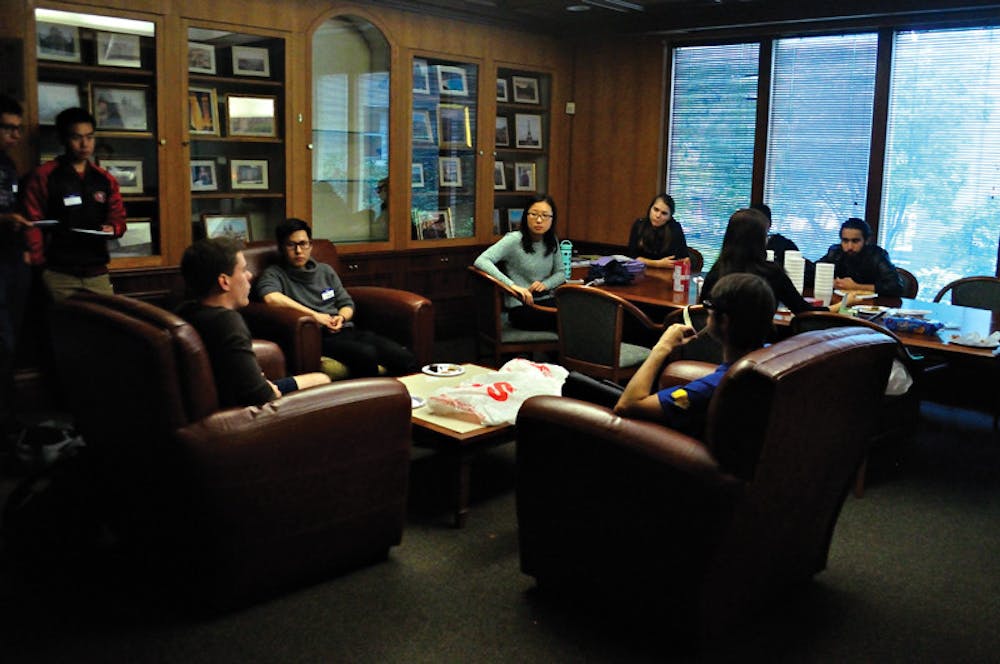Students discussed science and math as they chomped on pizza during the semester’s first departmental undergraduate group meetings held over the past few weeks.
DUGs hold a long tradition of enriching students’ college experiences with friendships, free food and academic discussions that take place outside of the classroom. Physical science DUGs play a particularly important role in exposing students to scientific thought and research not taught in classes and in preparing students to apply to graduate school and jobs, DUG leaders said.
Panels made up of graduate students and professionals comprise some of the most well-known and best-attended events hosted by science DUGs. At these events, speakers discuss their research and give students tips on applying to graduate schools. Some DUGs also participate in Brown Degree Days in the spring, during which recent alums come back to campus to share their experience in a particular field and discuss the paths that led them to their current careers.
Each year the Math DUG co-hosts the Symposium for Undergraduates in the Mathematical Sciences where undergraduates from across the nation present their research, and several graduate students and faculty members give lectures, said Shashwat Silas ’15, co-president of the Math DUG. The symposium offers a great opportunity for students to engage each other outside the classroom and communicate scientifically on a peer-to-peer level, he added.
Outside of the symposium, Math DUG members— the number of which ranges from five to 10 — simply enjoy hanging out at DUG events over food and math-related conversation, Silas said.
“People around you are doing all kinds of math for fun, not just working through Brown’s curriculum,” Silas said.
The Geology DUG distinguishes itself from other science DUGs because geology concentrators organically form a relatively tight-knit community through classes and field trips, said DUG co-president Raquel Bryant ’15. Since the members hang out regularly anyway, the DUG just offers a more formal, funded way for them to get together, she added.
DUGs are eligible to receive up to $500 annually from the Office of the Dean of the College, an amount that is usually matched by each department.
“DUGs, and the Geo DUG especially, offer a place to meet other people in your concentration who aren’t in your lab or class,” Bryant said. Students bond better in the DUG’s relaxed setting than in courses, which translates to being more well-connected and happy in classes, she added.
While the Geology DUG’s popularity has ramped up just in the past few years, others such as the Chemistry DUG have been active for longer, said Daniel DeCiccio ’15, co-president of the Chemistry DUG. The Chemistry DUG has always striven to recruit students early in their time at Brown, holding an annual A Day on College Hill event called “Night of Chemistry” where newly admitted students can view chemistry demonstrations, he added.
In addition to on-campus events, some Chemistry DUG members travel off of College Hill to promote and spread their scientific knowledge through community outreach programs. This summer, several students from the Chemistry DUG trekked to Vartan Gregorian Elementary to put on demonstrations of chemistry experiments, DeCiccio said.
The Chemistry DUG has a few new events planned for this year, including a workshop for women in chemistry in the spring, DeCiccio said.

ADVERTISEMENT




